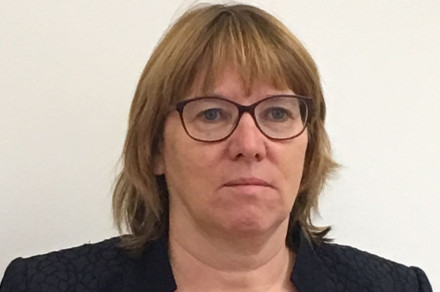About the Environment and Energy Inspectorate
The Environment and Energy Inspectorate carries out inspection control over the implementation of regulations on waste management and transboundary shipments of waste, industrial water pollution and environmental risks, emissions of substances into water from installations subject to operational monitoring, emissions of substances into the air from stationary sources of pollution, chimney sweeping services, storage of hazardous substances in stationary storage containers and stationary equipment containing greenhouse gases or ozone-depleting substances, and genetically modified organisms (GMOs), noise, electromagnetic radiation, light pollution, the national meteorological, hydrological, oceanographic and seismological services, the energy system and other regulations empowering energy inspectors to carry out inspections, as well as public passenger transport services for passengers in internal road transport and cross-border road transport to a transfer point in a neighbouring country designated by the public passenger transport authority, and the compulsory public service obligation for the carriage of passengers in internal and cross-border regional rail transport.
The Environment and Energy Inspectorate is also the authority of the Republic of Slovenia responsible for receiving prior written notifications and issuing consents for transboundary shipment of waste, and for conducting administrative procedures following notifications or applications for the shipment of waste to, from or across the territory of the Republic of Slovenia. The Environment and Energy Inspectorate also keeps records of the consents issued and the shipments actually carried out under these consents.
This is achieved through routine, non-routine and control inspections, minor offence proceedings and enforcement. In areas where major irregularities were identified in the past, where amendments to specific sectoral legislation redefined supervision and where there is a broader public interest, the inspectorate also performs targeted inspection campaigns. Additionally, it participates in joint campaigns with other inspectorates and in coordinated campaigns organised by the Inspection Council and regional coordination groups of the regional units.
Each report by legal or natural persons is classified by the criteria determined in the legislation and the internal act of the inspectorate. The ranking based on these criteria determines how quickly an inspection initiative will be triggered. Priority is given to reports that indicate a threat to human health and life, public security, or high-value property.
Managment
Organisational units
-
Environment Inspection
Ministry of the Environment, Climate and Energy
Environment and Energy Inspectorate of the Republic of SloveniaDunajska cesta 56
1000 Ljubljana -
Energy Inspection
Ministry of the Environment, Climate and Energy
Environment and Energy Inspectorate of the Republic of SloveniaVožarski pot 12
1000 Ljubljana -
Public passenger transport inspection
Ministry of the Environment, Climate and Energy
Environment and Energy Inspectorate of the Republic of SloveniaDunajska cesta 56
1000 Ljubljana -
Office for general and legal affairs
Ministry of the Environment, Climate and Energy
Environment and Energy Inspectorate of the Republic of SloveniaDunajska cesta 56
1000 Ljubljana
Inspection reports on installations that may cause large-scale pollution – reports on installations causing industrial emissions (IED reports)
Inspection of installations that may cause large-scale pollution
The Inspectorate responsible for environmental protection is mandated by the Environmental Protection Act (ZVO-2) to draw up an environmental inspection plan for installations causing industrial emissions (IED installations). On the basis of the environmental inspection plan, the Inspectorate formulates programmes for routine environmental inspections that include the frequency of on-site inspections of installations. The plan must cover all installations at national, regional and local level and be regularly reviewed and updated as necessary. It must include procedures for the preparation of programmes for routine and non-routine inspections. On the basis of this information, the inspection body carries out a risk assessment of the installations which is taken into account in setting inspection priorities.
The interval between two on-site inspections is based on a systematic assessment of the environmental risks and may not exceed one year for the most hazardous installations and three years for the least hazardous installations. The annual inspection plan serves to establish the list of persons liable to be inspected by the environmental inspectors in the current year and the content of the inspections.
After each routine inspection of an IED installation, the Inspectorate responsible for the environment compiles an IED inspection report summarising the relevant findings regarding the compliance of the installation with the requirements referred to in the environmental permit, and conclusions as to whether further action is required. In addition to routine inspections based on the annual work programme, environmental inspectors also carry out non-routine inspections of installations generating industrial emissions in the event of reports and incidents.
Reports on the inspection of establishments of major or minor environmental risk - SEVESO reports
Inspection in SEVESO establishments - establishments of major or minor environmental risk
The group of SEVESO establishments includes establishments which have hazardous substances involved in their operation which, on the basis of the criteria laid down in the regulations, qualify them as lower environmental risk or higher environmental risk establishments.
The Environmental Protection Act stipulates that routine inspections of establishments with a higher environmental risk should be carried out once a year, and inspections of establishments with a lower environmental risk are carried out once every three years. Inspectors inspecting risk establishments under other regulations (from the Labour Inspectorate of the Republic of Slovenia, the Chemicals Office of the Republic of Slovenia, the Internal Affairs Inspectorate of the Republic of Slovenia, the Inspectorate of the Republic of Slovenia for Protection against Natural Disasters or the Infrastructure Inspectorate of the Republic of Slovenia) may also participate in the inspection, if necessary. In accordance with the provisions of Article 245 of the Environmental Protection Act (ZVO-2), an annual inspection is to be drawn up for SEVESO installations, in accordance with which environmental inspectors carry out routine inspections of SEVESO establishments.




